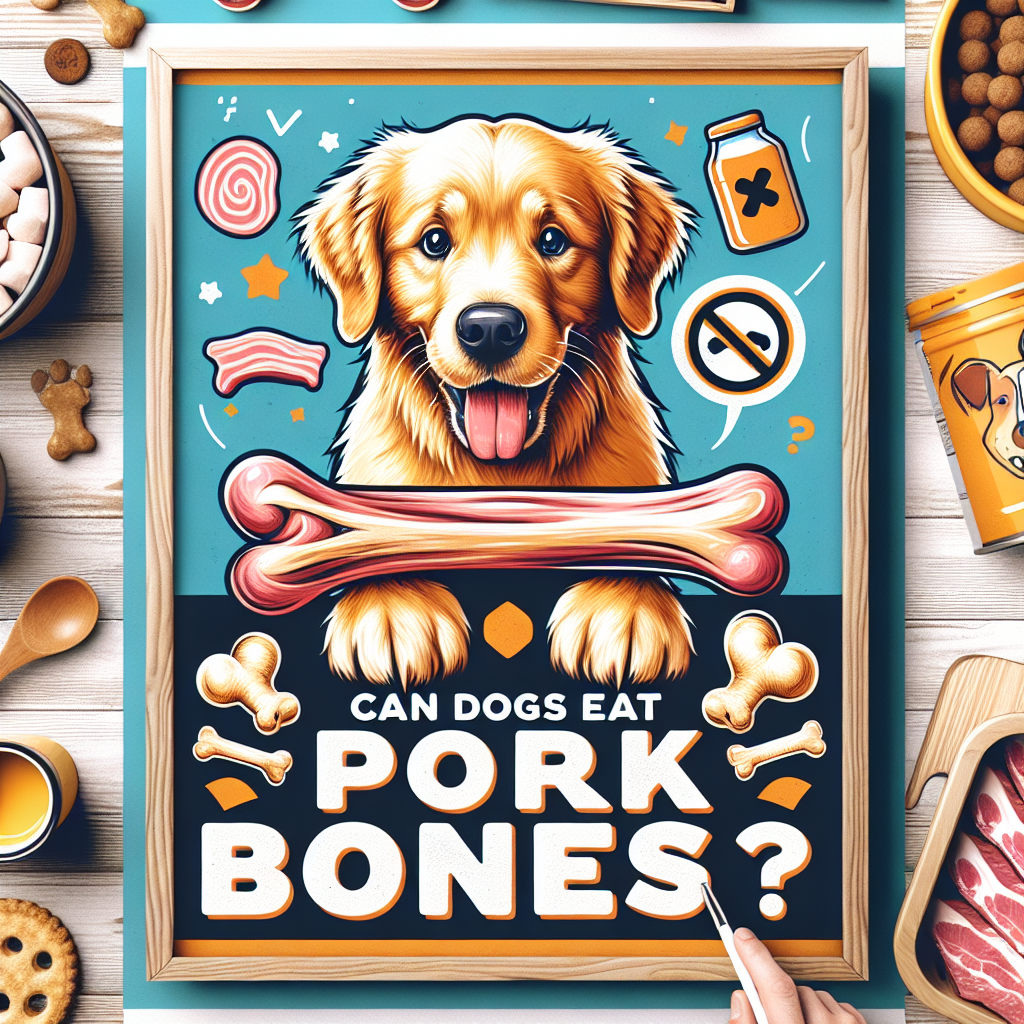Can Dogs Eat Pork Bones? A Comprehensive Guide
When it comes to our furry companions, dog owners are often inundated with questions regarding their pet’s diet. Among those questions, one that frequently arises is whether dogs can eat pork bones. While it may seem harmless to give your dog a bone as a treat, not all bones are created equal, and understanding the implications of feeding pork bones to dogs is crucial for their health and safety.
Understanding Bone Types
Before diving into the specifics of pork bones, it’s important to distinguish between different types of bones:
-
Raw Bones: These bones are softer and less likely to splinter. They can be safe for dogs to chew on, with their nutritional benefits, including minerals and protein.
-
Cooked Bones: Cooking bones makes them brittle and increases the risk of splintering. When cooked, bones can shatter, leading to sharp fragments that pose a choking hazard or can cause serious internal injuries.
- Weight-bearing Bones: Bones from larger animals (like beef) are often more suitable than those from smaller animals.
Are Pork Bones Safe for Dogs?
The short answer is No, dogs should not eat pork bones, especially if they are cooked. Here’s why:
-
Splintering Risk: Cooked pork bones, like other cooked bones, can easily splinter. These splinters can injure a dog’s mouth, throat, or digestive tract. Swallowing a splintered bone can lead to perforation of the intestines, which is a serious and often life-threatening condition requiring surgical intervention.
-
Choking Hazard: Just like any bone, pork bones can pose a choking hazard. If a dog tries to gulp down a piece instead of chewing it properly, it can get lodged in their airway, leading to respiratory distress or even death.
-
Fat Content: Pork itself has a higher fat content than other meats that dogs might consume. Although dogs are omnivores, excessive fat can lead to pancreatitis, an inflammatory condition of the pancreas that can be very painful and requires immediate veterinary attention.
- Potential for Bacterial Infection: Raw pork can harbor bacteria such as Salmonella or Trichinella spiralis, which can lead to infections in both dogs and humans. While dogs generally have a more acidic stomach, the risk still exists, particularly for immunocompromised pets or humans.
Alternatives to Pork Bones
If you’re looking for safe and healthy alternatives for your dog to chew on, consider these options:
-
Raw Meaty Bones: Bones from larger animals that are sold raw, such as beef knuckles or lamb shanks, can be a safer option. These are less likely to splinter and can provide beneficial nutrients.
-
Commercial Chews: There are many products available that are designed specifically for dogs. These often mimic bones but are made from safer materials and are easy to digest.
-
Soft Chews: Many brands offer dental chews or softer treats that can help with dental health while being safe for your dog to consume.
- Fruits and Vegetables: Many dogs enjoy certain fresh fruits and vegetables as snacks. Items like carrots, apples (without seeds), and sweet potatoes can be great options.
Conclusion
While the sight of your dog happily gnawing on a bone can be appealing, it’s important to consider safety first. Pork bones—especially cooked ones—pose significant risks to your dog’s health and well-being. The best approach is to choose safe and appropriate alternatives to satisfy your dog’s chewing instincts while ensuring they maintain a healthy diet. Always consult with your veterinarian when making changes to your dog’s diet or introducing new treats. After all, keeping your furry friend safe should always be the top priority!





